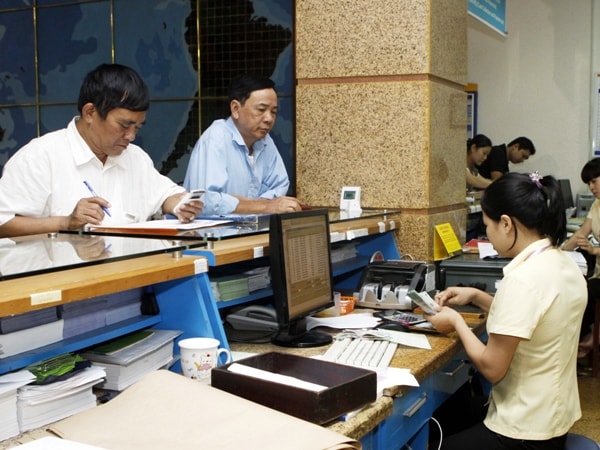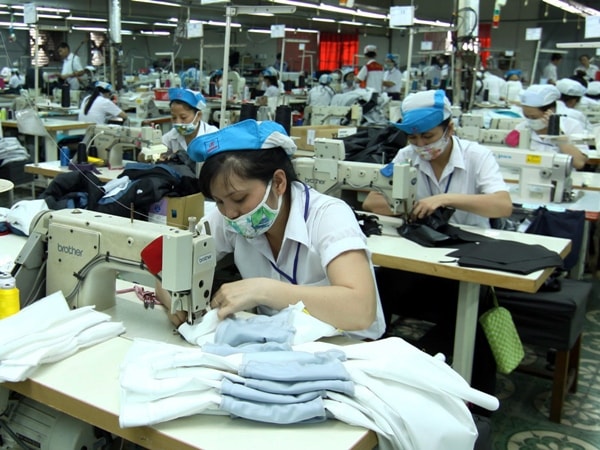Vietnam is the only one at APEC that does not have a supplementary pension fund.
While social insurance reform is essential and experts say pension levels will have to be adjusted at a lower rate, this will be a big shock for retirees at the time of adjustment as they will receive lower salaries than those who retired earlier.
While social insurance reform is essential and experts say pension levels will have to be adjusted at a lower rate, this will be a big shock for retirees at the time of adjustment as they will receive lower salaries than those who retired earlier.
To prepare workers for this reform, the Vietnamese Government will pilot a supplementary pension fund in 2014. This insurance system, when put into practice, will support the basic pension level for workers in the future.
Additional income when reducing basic pension
According to Deputy Minister of Labor, War Invalids and Social Affairs Pham Minh Huan, the increase in pensions with each increase in the general minimum wage has created great pressure on the state budget and social insurance fund. This pressure has made the process of salary reform in recent times very difficult.
Every year, the state budget for pension adjustment is very large, over 3,000 billion VND and tends to continue to increase rapidly in the coming years. This has a great impact on the balance of the state budget and the social insurance fund. Especially in the context of the pension fund facing the risk of not being able to pay in the next 20 years.
 |
| Social insurance reform is essential to ensure the maintenance of pension funds. (Illustration photo: Minh Tu/VNA) |
Deputy Minister Pham Minh Huan said that social insurance reform will be inevitable, in which, it will be inevitable to adjust pension rates in the future. Therefore, establishing a supplementary pension insurance system is extremely important to be able to carry out strong reforms in the future.
Mr. Pham Truong Giang, Deputy Director of the Department of Social Insurance (Ministry of Labor, War Invalids and Social Affairs) said that the pension system will develop in a multi-level direction, in addition to the basic pension level, there will be additional pension levels.
“Supplementary pension insurance will be the premise for pension reform in the following stages, when the basic state pension system only guarantees pensions at the floor level with a lower benefit rate than the current one, and the pension increase will be in supplementary pensions,” said Mr. Pham Truong Giang.
Thus, in the future, workers will need additional pension funds to ensure their retirement income.
Vietnam is the only one at APEC that does not have a supplementary pension fund.
In the world, supplementary pension fund is an essential insurance policy in the pension system of developed and developing countries. More than 80 countries have implemented this fund, most countries in ASEAN have implemented this insurance policy.
In the APEC bloc, only Vietnam has not yet implemented supplementary pension.
Experience from some countries shows that the basic pension has never been considered the only source of retirement income. In Thailand, the basic pension accounts for 60% and the supplementary pension accounts for 20%. Even in France, the basic pension accounts for only 20-25%, with the supplementary pension income accounting for 50-60%.
In Vietnam, stemming from the needs of workers and the desire to stabilize the workforce and attract high-quality workers, although there is no legal framework, many FDI enterprises have established supplementary pension funds such as: Unilever Vietnam Company, Nestle Vietnam Limited Liability Company, Dutch Lady Vietnam Company... This fund has been implemented for thousands of workers.
 |
| Some businesses have established their own supplementary pension funds. (Illustration photo: Vu Sinh/VNA) |
However, Mr. Pham Truong Giang said that because the amount of money deducted from the fund is not included in the company's expenses, when receiving the money, employees must pay personal income tax according to state regulations.
Because there is no policy for supplementary pension insurance, the formation, operation and management mechanism of these funds is different for each enterprise, inconsistent and spontaneous.
There is no legal framework, so when complaints and disputes arise, it will lead to difficult-to-handle consequences. Therefore, it is necessary to have a legal framework to regulate the relationship between employees and employers, and at the same time create conditions for employers to take care of employees.
Compensation for losses to civil servants
Assessing the feasibility of implementing the supplementary pension fund, Mr. Pham Truong Giang said that the biggest difficulty at present is the limited understanding of both employees and businesses about this policy.
Workers and society will easily confuse the non-profit, social supplementary pension fund with the many for-profit pension products provided by life insurance companies.
On the other hand, in the difficult economic situation, many opinions say that this insurance policy will not receive support from the majority of businesses and workers.
Mr. Dang Quang Dieu, Head of the Policy and Law Department (Vietnam General Confederation of Labor) said: "This is a very good policy, which will ensure income for workers when they retire in 20-30 years, but at the present time it will be very difficult to widely implement."
Although it will take time to roll out the supplementary pension fund to the majority of businesses, many well-developed businesses have seized the opportunity to create stable income for their employees upon retirement by proactively registering to participate in the pilot implementation of the supplementary pension fund.
“Although it has only been piloted, the Ministry of Labor, War Invalids and Social Affairs has received applications to participate from more than 20 enterprises in Vietnam, including state-owned corporations, multinational corporations and effective private enterprises in Vietnam.
These units all consider this a tool to support workers and connect workers with the business," said Mr. Pham Truong Giang.
Mr. Carlos Galian, Social Security Expert of the International Labor Organization in Vietnam, also emphasized that the supplementary pension program (or occupational pension program as many countries still call it) plays an important role in social insurance reform.
“I believe that when applied to public employees, this program can help compensate for losses caused by changes in pension calculation methods, ensuring that the social insurance reform process does not create too big a shock for workers,” said Mr. Carlos Galian./.
Supplementary pension insurance is a voluntary insurance policy. Contributions from employees and enterprises will form a supplementary pension fund. The fund's investment activities will be regulated to have at least 70% invested in government bonds to avoid risks. The form of additional social insurance contribution is that the employee and the employer pay at the agreed rate in the labor contract, but the employee's maximum contribution is not more than 50%. Each employee will have their own account and can check the additional pension insurance amount that they and their employer have paid at any time. It is expected that the pilot project of the supplementary pension insurance policy will be submitted to the Government by the Ministry of Labor, War Invalids and Social Affairs and implemented in 2014./. |
According to VNA






